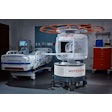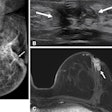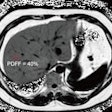Dear MRI Insider,
MRI manufacturers have been making a concerted effort in recent years to reduce scanner noise. But there are still worries about its effect on patients, in particular the most vulnerable population -- unborn children.
Fortunately, a new study has found that the higher noise levels of 3-tesla scanners relative to 1.5-tesla machines do not escalate the risk of hearing problems for children whose mothers were scanned before birth. More noteworthy details from the study are available in our Insider Exclusive.
Also in this issue, gadolinium retention remains a much-researched issue on several fronts. One group of researchers found that a reduced dose of a gadolinium-based contrast agent (GBCA) can be more effective than MRI scans with a standard dose of GBCA in differentiating between malignant and benign lesions in prostate cancer patients. Interestingly, a lower GBCA dose resulted in significantly greater signal enhancement in patients with malignant tumors than in those with benign prostate tissue.
In another study, researchers administered a GBCA to pregnant monkeys and found that gadolinium crossed the placenta and entered the fetuses. Most of this gadolinium then quickly returned to the mother's bloodstream for excretion, leaving mostly undetectable levels of gadoteridol in the babies after birth.
The U.S. Food and Drug Administration maintained its focus on the issue by issuing a directive to GBCA manufacturers to add a new warning to their product labeling that notifies healthcare providers that patients could retain gadolinium long after an MRI scan.
In other news, multiparametric MRI has an 80% chance of detecting clear cell carcinoma in the kidneys without the need for a confirming biopsy, according to a study from the University of Texas Southwestern.
Also, there is good news for patients with cardiac devices who are about to undergo an MRI scan. Researchers found no long-term clinically significant adverse events with the devices in a study of more than 1,000 exams.
Finally, if you have ever wondered about your IQ, MRI soon may be able to confirm your intellectual prowess. Researchers are using MRI to map the connection of neurological networks to see how well they function. If they are firing on all cylinders, you could be a genius.
Make a visit to the MRI Community at AuntMinnie.com part of your daily routine for the latest news and groundbreaking research from around the world.

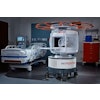
.fFmgij6Hin.png?auto=compress%2Cformat&fit=crop&h=100&q=70&w=100)
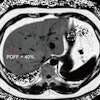


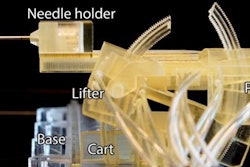

.fFmgij6Hin.png?auto=compress%2Cformat&fit=crop&h=167&q=70&w=250)
